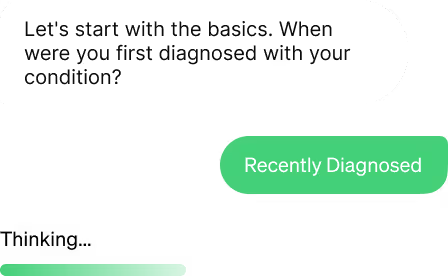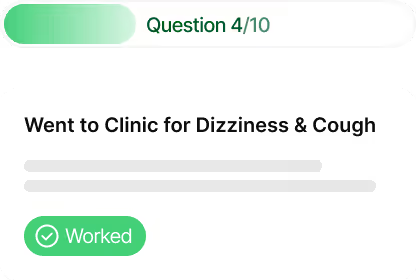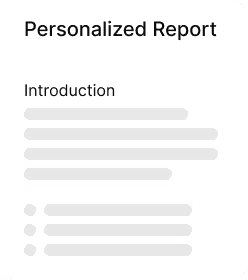Your personal
AI assistant for
Long COVID

.avif)
.avif)
.avif)
.avif)



.avif)


.avif)
.avif)
.avif)
.avif)



.avif)


.avif)
.avif)
.avif)
.avif)



.avif)


Our platform gives you a space to track your symptoms, prepare for medical visits, and learn from insights shared by others living with Long COVID. Whether you’re managing energy levels, exploring treatment options, or looking for questions to ask your doctor, mama health helps you stay organized and in control of your care.
You’re not alone in this. mama health is built to walk with you through the ups and downs of Long COVID, helping you understand your body, recognize what affects your recovery, and advocate for the care you deserve.
What is Long COVID?
Long COVID, also known as post-COVID-19 syndrome, refers to a range of symptoms that persist for weeks or months after the acute phase of a COVID-19 infection has resolved. These symptoms can vary widely and may affect multiple organ systems. Common symptoms include fatigue, shortness of breath, brain fog, joint pain, chest pain, and difficulty concentrating.
Long COVID can occur even in individuals who had mild or asymptomatic cases of COVID-19. The condition is still being studied, and the exact cause is not fully understood, but it is believed to involve lingering inflammation, immune system responses, and possibly damage to organs caused by the virus. Treatment typically focuses on managing symptoms and supporting recovery over time.


Long COVID is a condition where individuals experience persistent symptoms weeks or even months after recovering from the initial COVID-19 infection. These lingering effects can vary greatly, impacting different parts of the body and significantly affecting daily life.
The most common symptoms of long COVID are:
- Extreme tiredness (fatigue)
- Shortness of breath
- Memory and concentration issues ("brain fog")
- Heart palpitations
- Dizziness
- Joint pain and muscle aches
However, many other symptoms can also occur, such as loss of smell, chest pain, insomnia, pins and needles, depression, anxiety, tinnitus, gastrointestinal issues, and rashes.
How can mama health help?




Developed and supervised by medical experts
What patients are saying
There are so many testimonies and so many people like me.
I hope this platform grows so we can help so many people who feel alone with a disease.
In the end we are many and all together we can fight.❤️"
There are so many testimonies and so many people like me.
I hope this platform grows so we can help so many people who feel alone with a disease.
In the end we are many and all together we can fight.❤️"
Frequently asked questions
The healthcare system is missing a crucial piece—real patient experiences. We bring those voices back into the system, making healthcare truly patient-centric. By connecting data from patients, doctors, hospitals, and research, we help unlock new insights, improve treatments, and turn today’s incurable diseases into tomorrow’s breakthroughs.
- See what works – Learn from others with the same condition and avoid trial-and-error treatments.
- Get a clear health picture – Track your journey, compare with others, and gain deeper understanding.
- Be part of something bigger – Your experience helps improve healthcare and accelerate research.
We use the information shared on mama health to improve treatments and services for all patients. However, we ensure that no one—neither other patients, scientists, nor healthcare companies—can identify you personally.
To request the deletion of your data, simply send an email to support@mamahealth.com.

.avif)

.avif)





